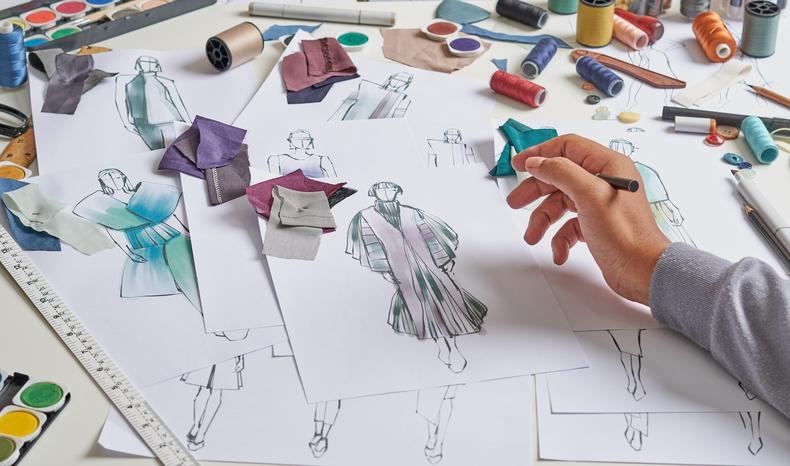
An apprentice costume designer is responsible for producing the costumes for a show, ensuring that they represent the play’s time period, style, and director’s vision while also being practical for the performer.
Responsibilities
Throughout your apprenticeship, you may help:
- study the script to understand costume requirements
- discuss ideas with the director, make-up artist and set designers
- research costume styles and fabrics
- sketch designs and create the costumes.
Salary
Pay for a costume designer can vary depending on their level of experience:
- An apprentice costume designer can earn £13,000 per year.
- An experienced costume designer can earn £18,000 – £28,000 per year.
- And a highly experienced costume designer can earn £35,000 per year.
Working hours
You will typically work 35 to 42 hours per week. Working evenings and weekends attending events or appointments.
Working environment
You could work at a film studio, in a theatre, at a TV studio, on a film set or from home.
Qualifications
Qualifications you can achieve as an apprentice costume designer include:
- Level 3 Costume Performance Technician – Entry requirements for this level include 5 GCSEs at grades 9 to 4 (A* to C), or equivalent, including English and maths, for an advanced apprenticeship. This qualification takes 15 months to complete.
- Level 3 Fashion Studio Assistant – Entry requirements for this level include 5 GCSEs at grades 9 to 4 (A* to C), or equivalent, including English and maths, for an advanced apprenticeship. This qualification takes 18 months to complete.
- Level 5 Bespoke Tailor and Cutter – Entry requirements for this level include 4 or 5 GCSEs at grades 9 to 4 (A* to C) and A levels, or equivalent, for a higher or degree apprenticeship. This qualification takes 24 months to complete.
Skills
On a costume designer apprenticeship, you’ll learn:
- the ability to work well with others
- sensitivity and understanding
- the ability to accept criticism and work well under pressure
- the ability to come up with new ways of doing things
- to be thorough and pay attention to detail
- knowledge of the fine arts
- excellent verbal communication skills
- design skills and knowledge
- to be able to use a computer and the main software packages competently.
Career path and progression
You’ll specialise in either theatre or film and TV but with experience, you could work in both areas.
Some people have gone from set design areas into costume design roles.
